Classics and the Western Canon discussion
Divine Comedy, Dante
>
Canto 13: The Intellect of Faith
date newest »
newest »
 newest »
newest »
 Ciardi excerpt: "It is fitting, therefore, that for three cantos Aquinas should be his mentor, playing in this capacity (in Paradise) the longest role after Beatrice...."
Ciardi excerpt: "It is fitting, therefore, that for three cantos Aquinas should be his mentor, playing in this capacity (in Paradise) the longest role after Beatrice...."How big was the role of Virgil considered in comparison for the entire Commedia?
The whole idea of mentors on one's spiritual journey is an interesting one -- feels so very modern in concept?
 http://etcweb.princeton.edu/dante/pdp...
http://etcweb.princeton.edu/dante/pdp...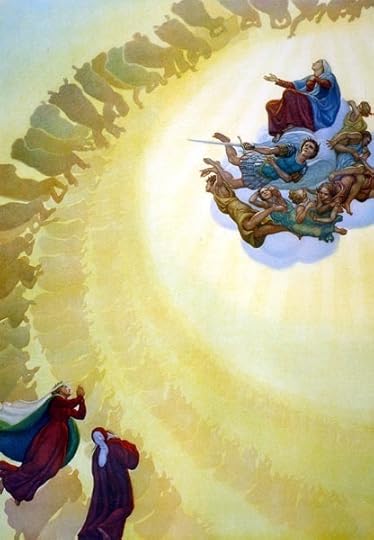
Amos Nattini, Paradiso Canto XIII. "Come l'augello, intra l'amate fronde, 1923.
Lily wrote: "http://www.lockportstreetgallery.com/...
Salvador Dali: Paradiso Canto 13. “Original Perfection"
Thank you, Lily.
Salvador Dali: Paradiso Canto 13. “Original Perfection"
Thank you, Lily.
 Adelle wrote: "Lily wrote: "http://www.lockportstreetgallery.com/...
Adelle wrote: "Lily wrote: "http://www.lockportstreetgallery.com/...Salvador Dali: Paradiso Canto 13. “Original Perfection"
Thank you, Lily."
Isn't that thing evocative? What is IS perfection, even if what is, is chaos?
 http://www.worldofdante.org/media/ima...
http://www.worldofdante.org/media/ima...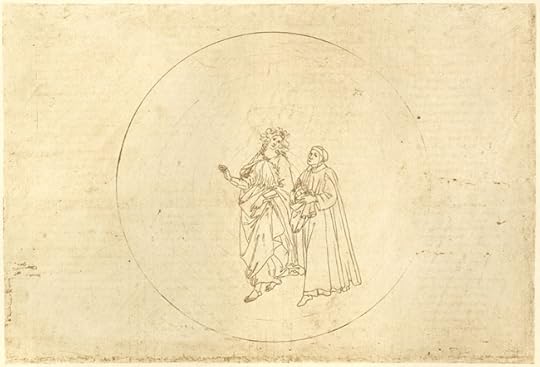
Sandro Botticelli: Paradiso Canto XIII.1. “Fourth Planetary Sphere (Heaven of the Sun); St. Thomas Aquinas Explains to Dante the Sense in Which Solomon Excelled in Wisdom.” c.1480 - c.1495. Drawing.
Somehow, I get the sense of some of these as unfinished? See here for source being used: http://www.worldofdante.org/gallery_b...
As I look at them in sequence, I can see differences more so than one by one, where it almost seems repetition.
 (Clearer image:) http://www.worldofdante.org/media/ima...
(Clearer image:) http://www.worldofdante.org/media/ima...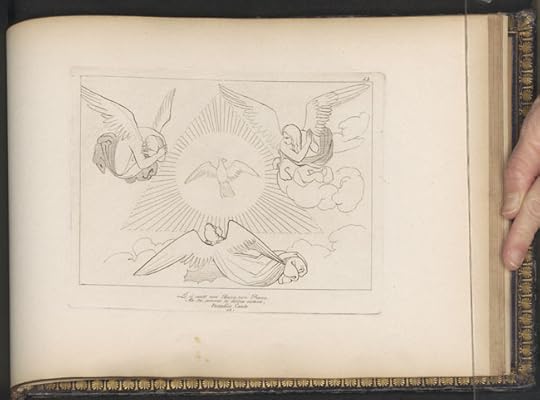
John Flaxman: Paradiso Canto XIII.25. “Singing the Praises of the Trinity.” 1793. Engraving.
 http://www.worldofdante.org/media/ima...
http://www.worldofdante.org/media/ima...Giovanni di Paolo: Paradiso Canto 13.13. “The Legends of Theseus and Ariadne.” c.1450. Manuscript illumination. Yates Thompson 36. British Library.
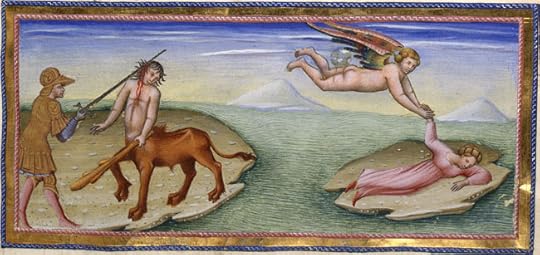
 http://www.metmuseum.org/toah/works-o...
http://www.metmuseum.org/toah/works-o...Marble sarcophagus at the Met depicting the story of Theseus and Ariadne.
http://www.museumoflove.org/pages/ari...
Don't know how closely this tracks the ancient myths, but 'tis nicely told.
Lily wrote: "Adelle wrote: "Lily wrote: "http://www.lockportstreetgallery.com/...
Salvador Dali: Paradiso Canto 13. “Original Perfection"
Thank you, Lily."
Isn't that thing evocative..."
It is indeed.
Salvador Dali: Paradiso Canto 13. “Original Perfection"
Thank you, Lily."
Isn't that thing evocative..."
It is indeed.
 I am interested to see Solomon extolled this way, since he was a pre-Christian, so the wisdom of God that he could have received would have been Jewish, not Christian wisdom. How, then, could it be perfect wisdom?
I am interested to see Solomon extolled this way, since he was a pre-Christian, so the wisdom of God that he could have received would have been Jewish, not Christian wisdom. How, then, could it be perfect wisdom?
 Everyman wrote: "I am interested to see Solomon extolled this way, since he was a pre-Christian, so the wisdom of God that he could have received would have been Jewish, not Christian wisdom. How, then, could it b..."
Everyman wrote: "I am interested to see Solomon extolled this way, since he was a pre-Christian, so the wisdom of God that he could have received would have been Jewish, not Christian wisdom. How, then, could it b..."Before Christ, Jewish wisdom is the same thing as Christian wisdom.
 Roger wrote: "Everyman wrote: "I am interested to see Solomon extolled this way, since he was a pre-Christian, so the wisdom of God that he could have received would have been Jewish, not Christian wisdom. How,..."
Roger wrote: "Everyman wrote: "I am interested to see Solomon extolled this way, since he was a pre-Christian, so the wisdom of God that he could have received would have been Jewish, not Christian wisdom. How,..."Right. The God of Abraham is the same God who loved the world and sent his Son. Read Hebrews 11, the great faith chapter, to see how Jews are treated in the New Testament.

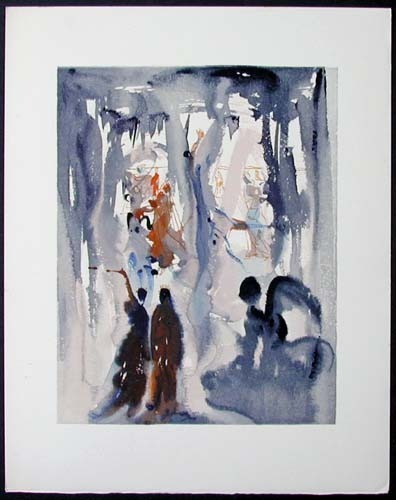


THE TWENTY-FOUR blessed spirits, moved by the concluding words of Bonaventure, manifest themselves as a mystical constellation while ringing forth a hymn of praise that fills all Heaven. When the hymn has been sung Aquinas speaks again. He has read Dante’s mind and addresses its perplexity, explaining WHY NONE EVER ROSE TO EQUAL SOLOMON’S WISDOM. He concludes with a WARNING AGAINST HASTY JUDGMENT.
Reynolds/Sayers:
The Wisdom of Solomon: In the story, St Thomas’s discourse on the peerless wisdom of Solomon arises from the need to distinguish between the wisdom of kings and the wisdom of all men. This is preceded by a preliminary discourse on direct and indirect creation, in which the wisdom of Solomon is seen as a reflection of the Word of God. In the allegory, God’s gift of kingly wisdom to Solomon is an instance of the specific qualities (and limitations) of all men, resulting from the varying dispositions and influences of the heavens at the time of their birth and from the imperfect nature of the material of which they are made. The legend of Solomon’s wisdom is divested by St Thomas of all mystery and set coherently within the rational structure of logic and orthodoxy. Yet, in the process, a far greater mystery is seen to emerge: the mystery as to how an imperfect world can be produced from the operations of nature on primal matter, both themselves direct creations of God.
St Thomas Aquinas: In this canto, St Thomas, firmly guiding Dante away from undefined and ambiguous terms along the disciplined path of intellectual deliberation and distinctions, warning him, too, against unreasoned and hasty judgements, is a natural symbol of the influence which his writings had on Dante’s mental growth. From no one, as from Aquinas, had Dante learnt intellectual integrity, and, more than any other Christian teacher, he summed up for Dante the doctrine of God. It is fitting, therefore, that for three cantos Aquinas should be his mentor, playing in this capacity (in Paradise) the longest role after Beatrice.